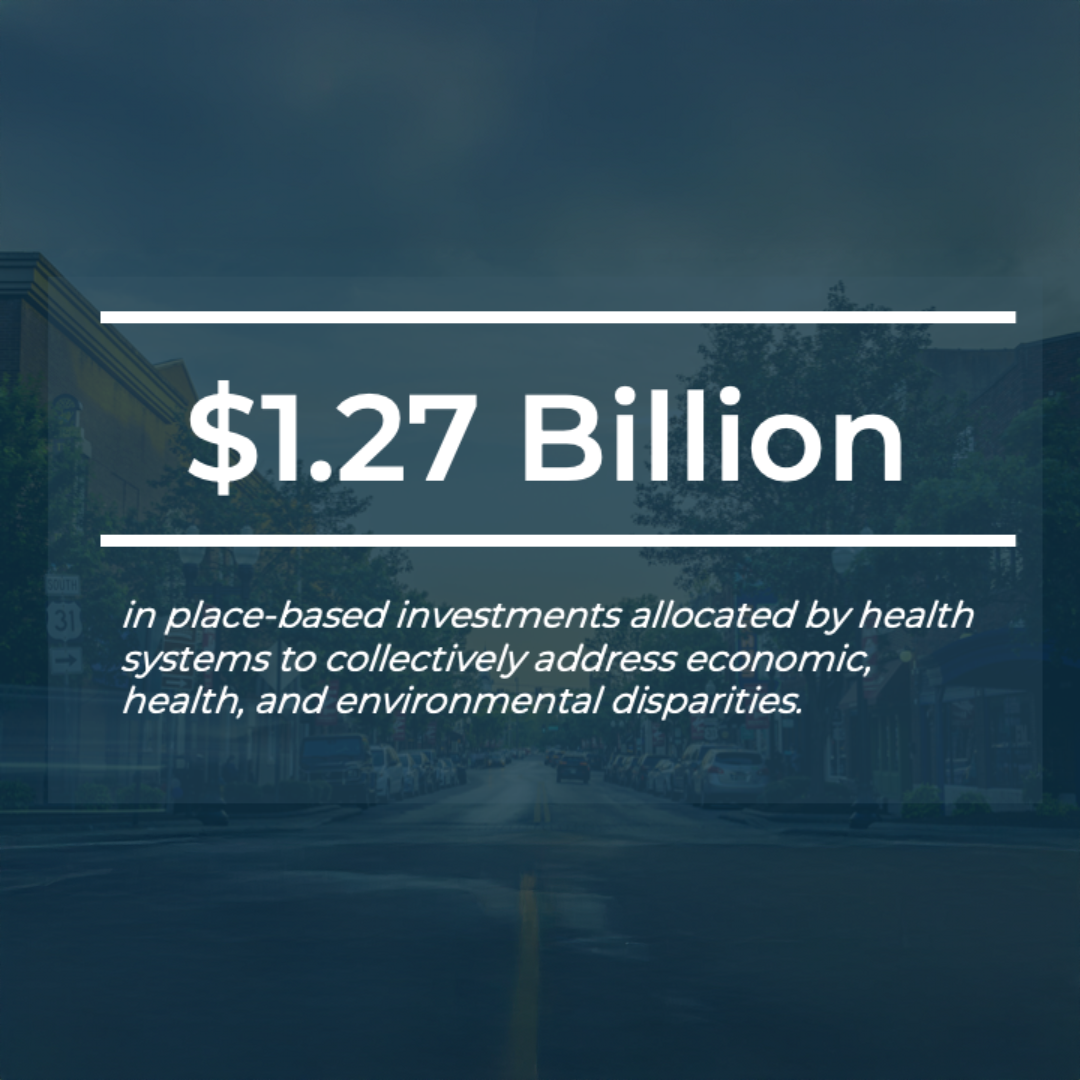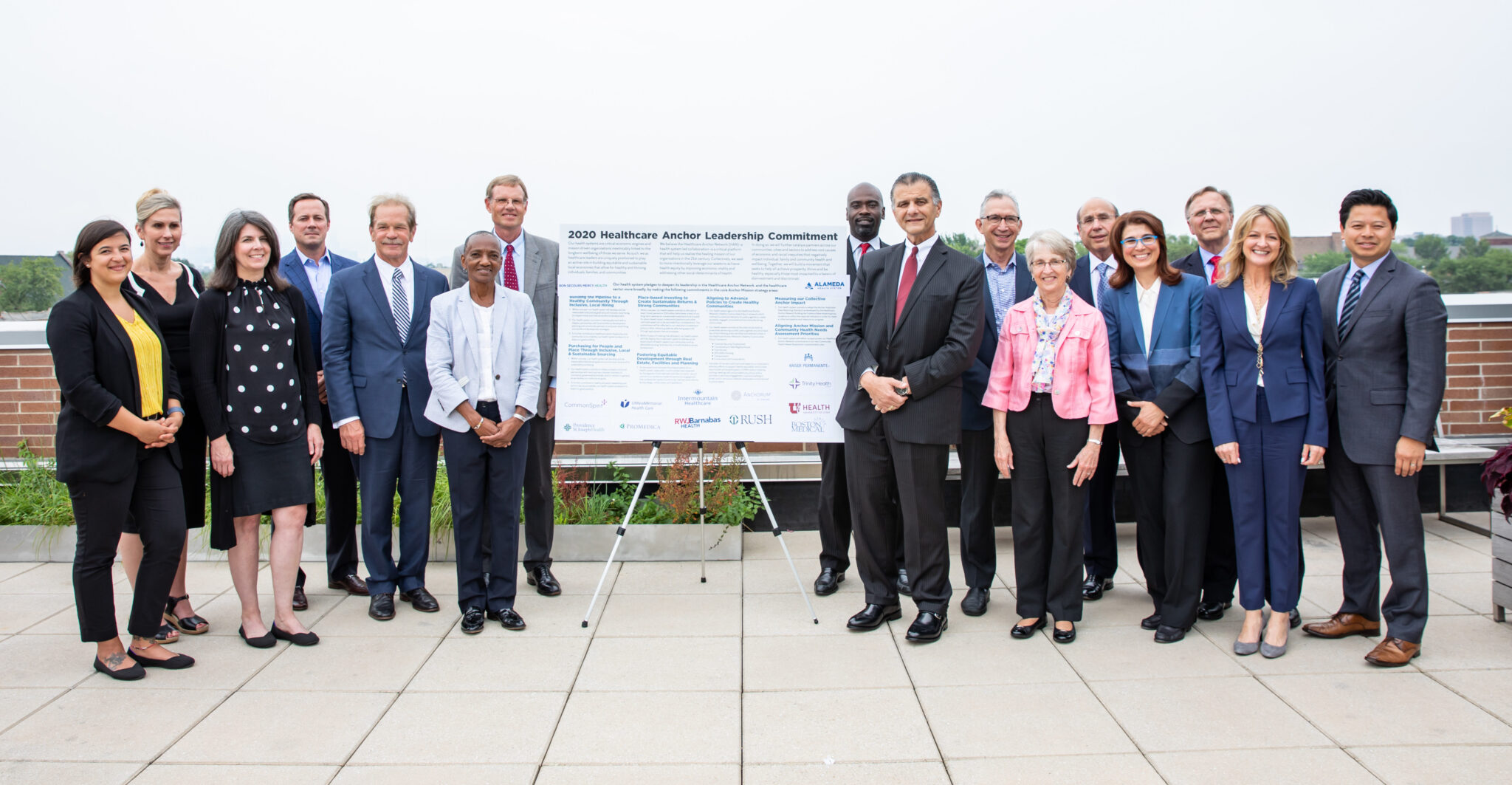HAN member health systems are critical economic engines and mission driven organizations inextricably linked to the longterm wellbeing of those we serve. As such, we as healthcare leaders are uniquely positioned to play an active role in building strong local economies that allow for healthy and thriving individuals, families, and communities.
The health systems utilize an “anchor mission” approach: Intentionally aligning business functions—including their hiring, purchasing, and investing—with community needs, to create pathways for economic mobility and prosperity for low-income residents while building more resilient local economies and positively impacting their health and well-being.
HAN has developed commitments which HAN health systems can sign onto in these key issue areas:
Impact Purchasing Commitment (IPC)
HAN member health systems across the country signed the “Impact Purchasing Commitment” (IPC) to build healthy, equitable, and climate-resilient local economies through what and how they spend their dollars. The IPC commitment, designed by the Healthcare Anchor Network (HAN), in partnership with Health Care Without Harm and Practice Greenhealth, included increasing spending with local and high-impact businesses such as employee-owned, cooperatively owned and/or nonprofit-owned enterprises, by at least $1 billion collectively over five years. The participating health systems are making major shifts in their procurement strategies to help address the economic and environmental disparities that impact community health outcomes.
Place-based Investment Commitment

Health systems sign the Healthcare Anchor Network’s (HAN) Place-based Investment Commitment, and commit to redirecting a portion of their investable assets toward impact investments that are place-based and address community conditions that create economic, health, and environmental disparities. Signatories pledge to allocate at least 1% or $50 million (whichever is less) of long-term reserves or unrestricted investment fund or pool for place-based impact investments to be deployed within five years.
Impact Workforce Commitment (IWC)
Eighteen health systems across the country, some of the largest employers in their areas, have signed the “Impact Workforce Commitment” (IWC) to build healthy and strong local economies through their hiring and workforce development programs and policies. The commitment, designed in partnership with a leadership group of Healthcare Anchor Network (HAN) member health systems and the National Fund for Workforce Solutions, includes aligning hiring and workforce power with clinical and community efforts to provide opportunities for individuals who may have faced barriers to employment due to myriad factors. These factors include low income and lack of access to education and training. The commitment aims to improve societal health and well-being by creating economic opportunities and strengthening local communities.


